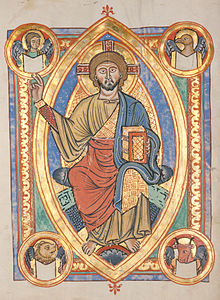User:Edderiofer/sandbox
The Happy Squirrel (Tarot card)
[edit]
The Happy Squirrel (XXIII) is a nonstandard Major Arcana card in the tarot deck.
Description
[edit]
A squirrel sits on a branch, smiling and holding an acorn.
History
[edit]The Happy Squirrel originates from the The Simpsons episode "Lisa's Wedding". In this episode, Lisa visits a fortune-teller and is initially frightened when the fortune-teller draws the Death card. The fortune-teller explains that the Death card does not necessarily symbolize death, but just a transformation. The fortune-teller then draws The Happy Squirrel, whereupon Lisa remarks that it is cute. The fortune-teller, however, is alarmed for reasons unknown; when pressed for explanation, she simply says "the cards can be vague and mysterious".
Since then, The Happy Squirrel has been incorporated in some modern tarot decks, usually as a joke card.
Being so modern, The Happy Squirrel does not appear in most traditional tarot decks like the Rider-Waite deck.
Interpretation
[edit]This card has no canonical interpretation, as the creators of "Lisa's Wedding" likely intended the card as a one-off joke. Most readers remove The Happy Squirrel from the deck before doing a tarot reading.
However, some interpretations by various people of The Happy Squirrel include:
- An unforeseeable circumstance, neither good nor bad.
- A random element that cannot be controlled.
- Something bad disguised as something good.
- Prepare for a winter.
- The querent is crazy, and the reader should run.
Drawn in reverse, it can mean:
- <<TODO>>
References
[edit]Bibliography
[edit]External links
[edit]E. H. Hotchkiss Company
[edit]The E. H. Hotchkiss Company (originally the Jones Manufacturing Company) was a company founded in 1895 by a group of people including one Eli Hubbell Hotchkiss, after whom the company is named. It is notable for having produced the "Hotchkiss No. 1.", the first model of stapler to have been sold in Japan, in 1903.
As such, the E. H. Hotchkiss Company is credited with the etymologies of the Japanese word "ホッチキス" and the Korean word "호치키스", both meaning "stapler".

